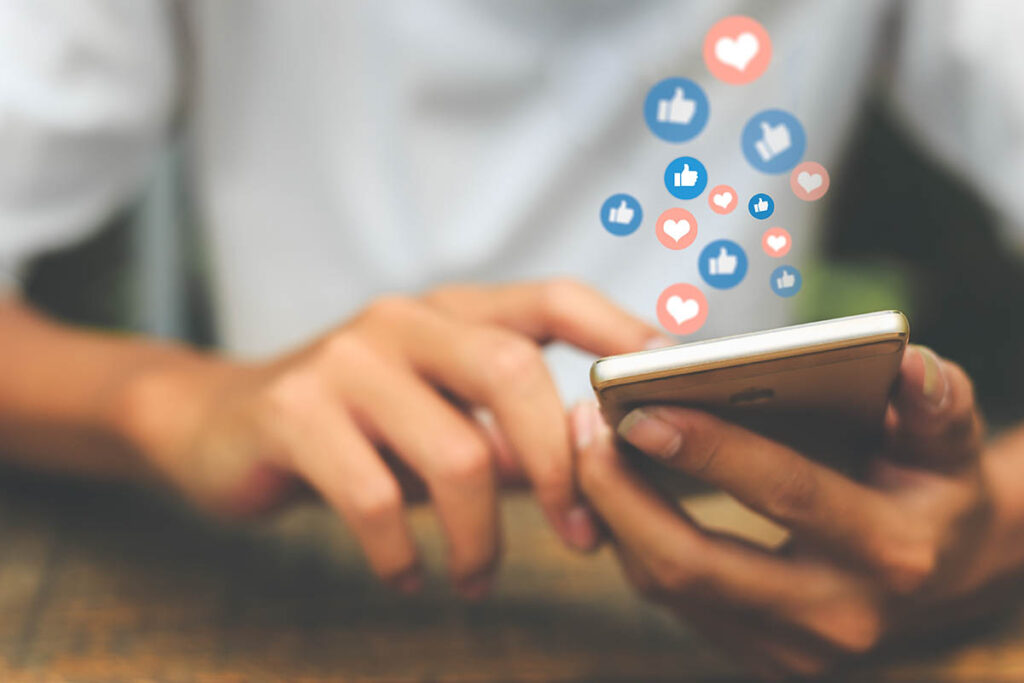Today, social media is a constant presence in many peoples’ lives. This modern convenience has several potential upsides. However, it also has some much darker aspects. In particular, experts are becoming aware of the links between social media and depression and other mental illnesses. Not all media users will develop a mental health issue. Still, significant numbers of people are at risk.
If you think your social media use harms your mental health, contact the experts at Springfield Wellness Center. We offer a range of state-of-the-art treatments for mental health issues. With our help, you can set the stage for the recovery of your everyday sense of well-being. Learn more about mental health treatment options by calling 844.334.4727.
The Connection Between Social Media and Depression
When discussing social media apps like Instagram and your mental health, depression risks are a big concern. In some cases, people using these apps are already affected by depression. However, the use of social media can also increase your odds of developing the illness.
One big factor in how social media affects mental health is the extent of use. A recent study looked at the impact of daily use levels on young adults. This study found that:
- Depression risks remain relatively low when usage is no more than two hours a day
- Risks increase by 100% when usage falls between 3 ½ to 5 hours a day
- A 200% increase occurs in people who use social media more than 5 hours daily
These statistics don’t necessarily mean that social media use causes depression. There are too many other factors involved to make such a blanket statement. Still, the apparent link between media use and depression cannot be ignored.
Social Media Leading to Anxiety
In many ways, social media apps are designed to feed feelings of anxiousness in users, particularly for people who post on media sites. Active users tend to feel anxious both before and after posting new content. That feeling can become compulsive. When it does, app users return again and again, despite the effects of unpleasant mental states.
When anxiety is significant enough to disrupt your ability to function, you may have a diagnosable anxiety disorder. There are multiple types of these illnesses, including:
- Generalized anxiety disorder
- Panic disorder
- Social anxiety disorder
- PTSD
Taken together, they affect even more people than depression. As with depression, your risks for serious anxiety problems increase the more you use social media apps.
Potential Positive Social Media Effects
Are there any potential bright spots between apps like Instagram and your mental health? Research suggests that the answer is yes. If most of your social media interactions are positive, there may be a mental health benefit. That includes a potential reduction in your depression and anxiety risks. However, the situation changes when most of your interactions are hostile or antagonistic. In these circumstances, your depression and anxiety risks can quickly increase.
Having a large number of friends on social media may also be beneficial to your mental health. But research is less detailed on this point. No one can say for sure how the size of your friendship circle affects you.
Learn More at Springfield Wellness Center
Want to learn more about how social media affects mental health? Just contact the professionals at Springfield Wellness Center. We’re happy to answer your questions and help you get a better understanding of your risks. You can use this knowledge to make more informed choices when using social media.
Springfield Wellness also features innovative treatments for depression, anxiety, and other mental health problems. That includes a cutting-edge brain restoration technique called NAD+ therapy. For more information, call us today at 844.334.4727 or reach out through our online form.

